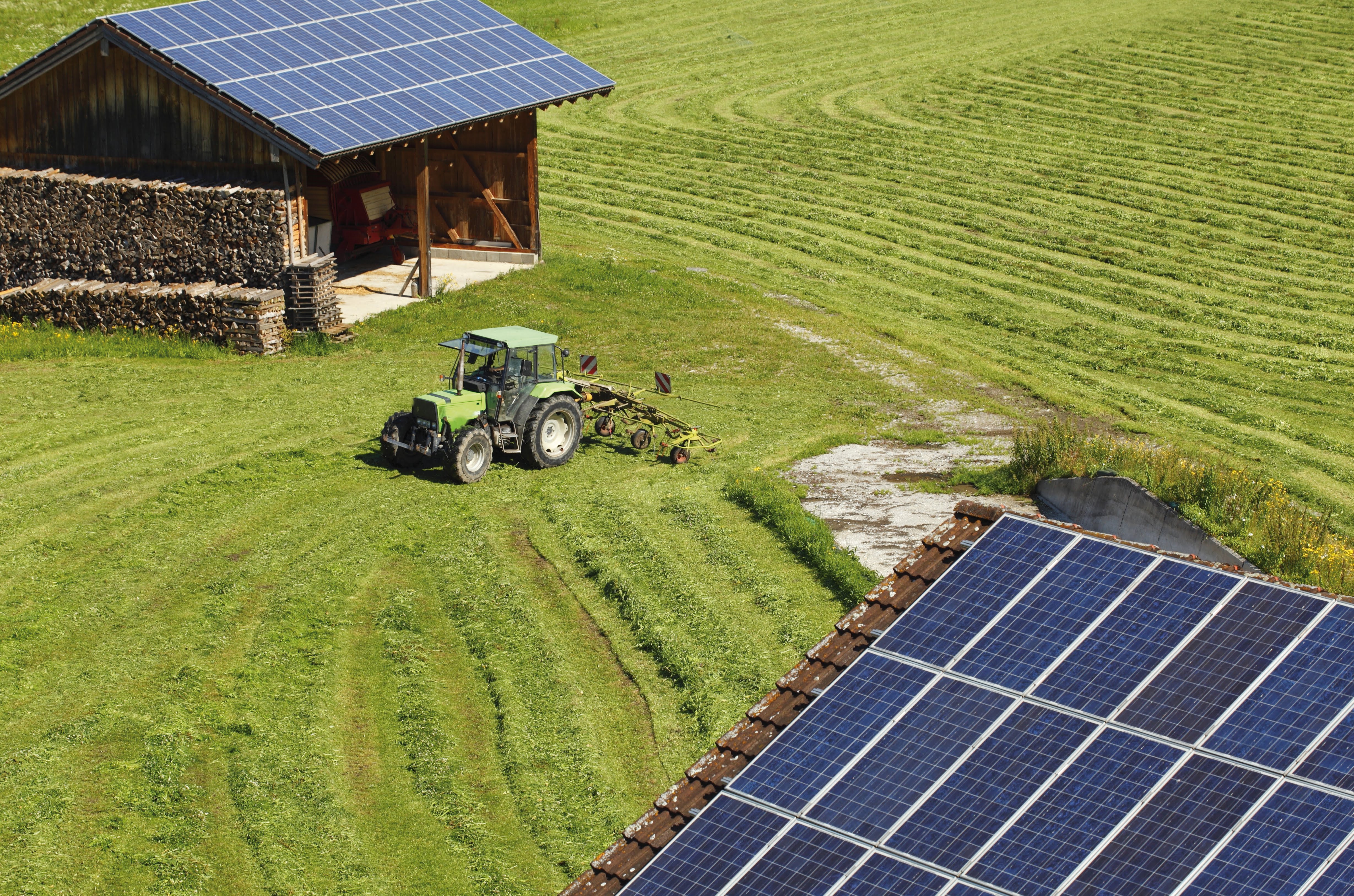



Farmers are key drivers in the transition to "net zero" emissions
Farming causes around 10 percent of UK greenhouse gas emissions and reaching "net zero" is now top priority, with a new range of incentives likely to feature heavily in future agricultural policy.Farmers will play a significant part in the replacement of fossil-derived fuels with low-carbon or carbon-negative alternatives. Not only is this crucial for the environment, with agriculture presenting a big part of the solution to the supply of renewable heating fuels, it’s profitable.

Farmers and landowners wanting to find out more about diversification opportunities in renewable energy are urged to attend Energy and Rural Business Show, taking place in the East of England Arena on 3-4 March 2020.
Speaking at the event, Jonathan Scurlock, NFU chief adviser, renewable energy and climate change, believes that now is a key time for farmers to look at diversifying their income with a wide range of activities that contribute towards net zero.
“We need to create more ways to remove CO2 from the atmosphere,” says Jonathan. Referencing the recently launched "Achieving net zero by 2040" NFU proposal, he explains that farmers need access to a multiplicity of forms of carbon finance, benefiting from the provision of "negative emissions" as a public good, alongside climate-friendly agricultural production.
“By facilitating carbon capture, we can create 'negative emissions' by actively removing carbon from the atmosphere to balance methane (CH4) and nitrous oxide (N2O) emissions from food production.
“The ways of doing this include linking crop production to carbon-negative power stations and anaerobic digestion (AD) plants that recycle or store their CO2 emissions. There’s also scope to use non-food crops such as hemp and Miscanthus as the raw materials for bio-based products made of bio-fibres and bioplastics, while the renewable CO2 from AD plants could be captured as a feedstock and turned into synthetic fuels and chemicals. We believe that farmers can be key drivers in this low-carbon transition,” says Jonathan.
“In terms of other renewable energy types, we are seeing a resurgence of planning consents for unsubsidised large-scale ground-mounted solar, and the business case for roof-mounted solar has never really gone away. Most solar installations come with battery storage incorporated now and there are new opportunities to link this energy storage to electric vehicles. And while the RHI scheme will be phased out in 2021, we anticipate new prospects to spring up for biogas generated from AD,” says Jonathan.
Jonathan Scurlock will be speaking on agriculture’s role in achieving net zero in "The Big Debate," which is a new feature for the 2020 event.
Energy and Rural Business Show, incorporating Energy Now Expo, Rural Business Expo and Low Emission Vehicles Expo, will take place in the East of England Arena on Tuesday 3 and Wednesday 4 March 2020.
Energy and Rural Business Show highlights include:
- Dedicated conference sessions on opportunities in anaerobic digestion and biogas, biomass, heat pumps, hydropower solar
- A dedicated energy storage theatre
- A one-to-one renewables advice clinic
- An exhibition showcasing the latest farm diversification and renewable energy opportunities
- "How-To" farm diversification workshops
- The most cutting-edge developments in renewable technology
- Innovative new products
- Updates on government policies and support
- The Low-Emission Vehicles Expo, providing expert advice on opportunities in low carbon cars and machines
- New for 2020, The Big Debate on the continued growth of the renewable energy and low carbon sectors









